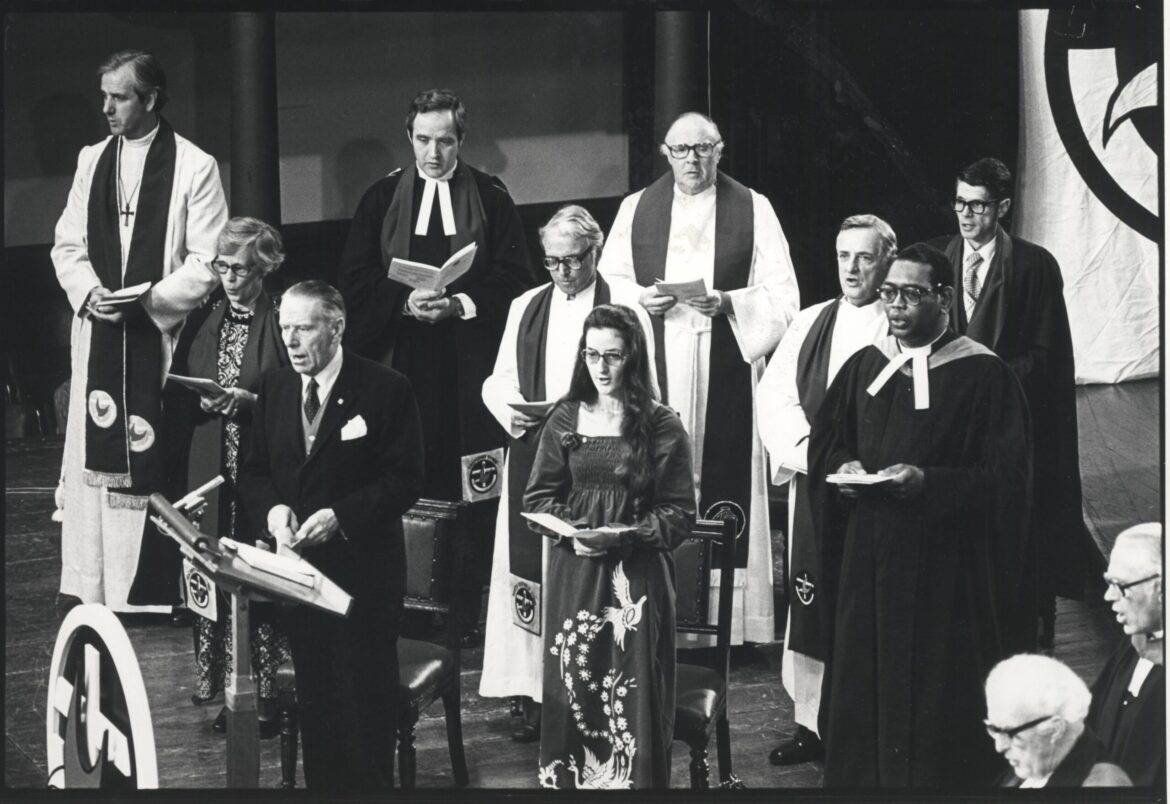The Uniting Church of Australia emerged as a salient beacon within the ocean of Christian denominations in Australia. It represents a syncretic amalgamation of diverse ecclesiastical traditions, merging the doctrines, practices, and aspirations of the Australian Methodist, Congregational, and Presbyterian churches. Established in 1977, this union conveyed a resounding declaration of unity, underscoring the potent metaphorical significance of the body of Christ—many members yet one body. The tapestry woven by this union is rich with theological reflections that still resonate profoundly in the Christian landscape today.
The theological foundations of the Uniting Church are anchored in a distinct interpretation of grace, community, and discipleship. Central to its ethos is an unwavering commitment to the pursuit of social justice. This is not merely an abstract theological ideal but a compelling call to action. The church’s belief in the imago Dei—image of God—affirms the inherent dignity and worth of every individual, fostering a culture of inclusion and compassion. In this context, the Uniting Church has sought to challenge preconceptions of power and privilege, advocating instead for a community characterized by radical hospitality and engagement with societal woes.
At the heart of Uniting Church theology lies its understanding of sacraments, particularly baptism and communion, which are viewed not simply as rites but as means of grace—vivid encounters with the divine. This theological foundation bestows a sacred significance on common life and communal worship. The observance of communion, imbued with a profound sense of shared experience, serves as a reminder of the communal nature of faith. Just as the loaf is broken and shared, so too is the church called to break down barriers, reaching out in fellowship not just within its own walls but to the broader community.
Moreover, the Uniting Church positions itself distinctively in the theological conversation surrounding tradition and innovation. It embraces the concept of being both rooted and adaptive. This duality offers a metaphorical bridge—a connection between ancient faith stories and contemporary realities. As culture continually evolves, the church leverages its rich heritage while daring to explore unexplored pathways of expression and belief, relying on the guiding light of scripture while interpreting it through the lens of modernity.
One cannot discuss the Uniting Church without acknowledging its robust engagement with Indigenous issues, which serves as an exemplar of its social justice convictions. The church has taken significant strides towards reconciliation, acknowledging historical injustices and advocating for the rights and recognition of Aboriginal and Torres Strait Islander peoples. This reconciliation journey reflects the broader aspiration of the church to embody Christ’s transformative love—a call to humility and repentance, interwoven with a commitment to advocacy and action. By extending a hand of partnership, the church not only honors the historical narratives of Indigenous communities but also catalyzes fresh dialogues about identity and belonging in a multicultural context.
The Uniting Church also engages with ecumenism, actively participating in broader Christian unity efforts both nationally and globally. This commitment highlights an essential aspect of its identity—the belief that, though distinctions may exist, authenticity in faith can be pursued collectively. Through shared initiatives, the Uniting Church embodies the scriptural mandate to be one body in Christ. Such interactions foster mutual learning opportunities, enriching the ecclesiastical landscape in ways that speak to the inherent creativity of the faith experience.
In terms of impact, the Uniting Church’s resonance extends well beyond its congregations. Its advocacy for social justice, especially concerning refugees, climate change, and economic inequality, epitomizes a church that is not afraid to stand at the intersection of faith and public life. The church’s position on these matters reflects a prophetic voice—a clarion call that reverberates throughout Australian society, challenging individuals and communities alike to engage in meaningful discourse and action. This bold posture acts as a testament to a faith that is alive, relevant, and deeply engaged with the pulse of contemporary life.
Moreover, the Uniting Church has harnessed the power of narratives—stories that reflect its journey, struggles, and triumphs. This narrative approach serves as a unique appeal, connecting generations through shared experiences that echo the challenges and aspirations of faith seekers. Facilitating such storytelling fosters intergenerational dialogue, strengthening communal ties while ensuring that younger generations inherit a legacy imbued with purpose and resolve.
The church’s embrace of the arts—music, visual arts, and literature—further amplifies this narrative, providing a medium through which the sacred and the ordinary intersect. Worship services that employ creative expressions not only enrich the spiritual experience but also evoke emotions that resonate with the heart’s longing for connection and meaning. In this way, the Uniting Church emerges not merely as a traditional institution but as a vibrant community of faith that invites exploration, curiosity, and transformation.
In conclusion, the Uniting Church of Australia stands as a mosaic of history, faith, and societal influence. Its unique theological insights, commitment to justice, and inclusive practices position it as a salient voice in contemporary Christianity. As it continues to evolve, the church remains a captivating testament to the enduring call of Christ—a call that summons believers not only to personal salvation but also to collective responsibility in shaping a world defined by love, grace, and justice. History, theology, and impact coalesce within this vibrant community, inviting all who seek to navigate their faith journeys with a sense of purpose and belonging.



